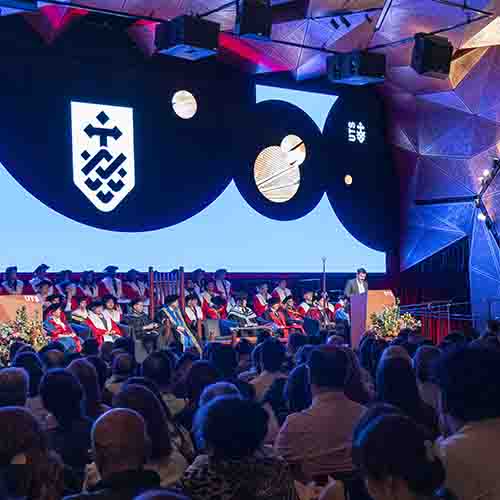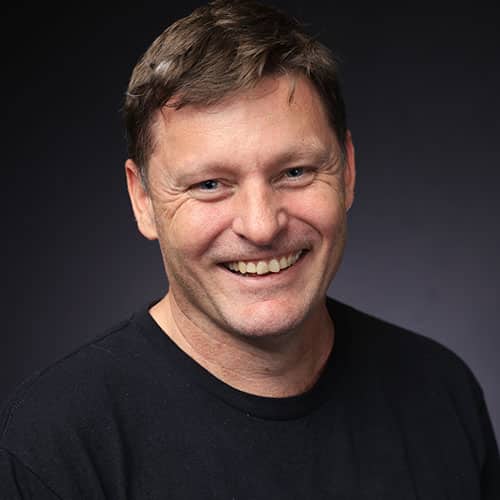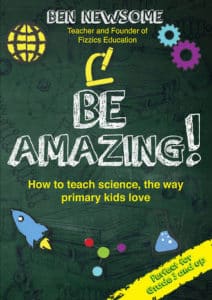This month was a special day for me as I was invited to my alma mater University of Technology Sydney to give the occasional address to graduates from the Faculty of Science and the Faculty of Design, Architecture and Building. It was an honour to hear about the breadth of doctoral research and a privilege to represent the UTS Alumni community at this special occasion.
Special thanks to Deputy Chancellor Dr John Laker, Presiding Vice-Chancellor
Mr Glen Babington CSC , Deans Professor James Wallman & Professor Mark Evans, Director Michael Gonzalez, Academic Board Representative Lynn Sinclair, UTS Alumni Theresa Winters & Casey Chesterfield.
Below is an excerpt from the address
——–
Deputy Chancellor, Presiding Vice-Chancellor, Deans, esteemed faculty members, distinguished guests, proud families, friends, and most importantly, our graduates:
… congratulations!
The work you’ve done has been tremendous. You’ve been persistent and resilient, no doubt there have been late nights, juggled time conflicts and more than a little anxiety when approaching formal examinations and submissions.
Today is a day to celebrate, reflect, and anticipate the future. It is a privilege to stand before you as we honour not just the hard work you have put in, but also the unwavering support of your families, friends, and mentors. To all of your supporters, the UTS community truly thanks you!
Graduates, the world you enter today is vibrant, challenging, and dynamic. Whether you have explored the complexities of biomedical science, pushed the frontiers of biotechnology, or cultivated your creative vision through design and architecture, you now stand at the threshold of change and opportunity.
At first glance, your fields may seem to occupy different worlds, but they share a unifying purpose: to improve the human condition. Architects and designers imagine environments that inspire and nurture, while medical scientists and biotechnologists pioneer discoveries that sustain and enhance life.
These disciplines are increasingly interwoven—scientific innovations now shape sustainable design, and design & architecture influences scientific innovation through digital twin technologies, wearable biosensors, smart cities & more.
This is the future you are prepared for: a world where collaboration, adaptability, and creativity are the keys to solving the most pressing challenges. From climate change to public health, urbanization to scientific advancement, the problems we face demand solutions that cross disciplinary boundaries. And you, as graduates, are ready to meet these challenges head-on.
This is the future you are prepared for: a world where collaboration, adaptability, and creativity are the keys to solving the most pressing challenges. From climate change to public health and urbanization to scientific advancement, the problems we face demand solutions that cross disciplinary boundaries. And you, as graduates, are ready to meet these challenges head-on.
Throughout your time at UTS, you’ve embodied the university’s core values: DISCOVER, ENGAGE, EMPOWER, DELIVER, and SUSTAIN. These are not just ideals to aspire to—they are the foundation for meaningful action.
Keep these values in mind as they will guide you as you move into a world marked by rapid change. They will empower you to navigate uncertainty with confidence, making your mark in ways large and small.
I encourage you to push the boundaries and be audacious. Be open to suggestions and embrace opportunities as they come—they just might change your life and the lives of those around you.
Let me share a personal story.
I work as a science educator, with my company Fizzics Education running STEM outreach programs for the past 20 years on behalf of many organisations and reaching several million students in the process.
In 2012 I had the privilege of working alongside Mr. David Elliott OAM, Chairman of the Australian Age of Dinosaurs Museum. Some of you might recognize him from the television program Australian Story. His journey began unexpectedly—while working on his property in Western Queensland, he stumbled upon a dinosaur bone. What started as a chance discovery grew into the establishment of an internationally recognized museum in Winton, Queensland (Australian Age of Dinosaurs Museum).
At the time, David had just returned from a Churchill Fellowship to learn how to build and develop a regional museum. One day, as we worked together in the outback assembling a dinosaur bone, we began chatting about my work in distance education for remote schools through both Fizzics Education and my non-profit Virtual Excursions Australia.
He turned to me and said, “You might like to have a look at one of these Fellowships.”
That casual conversation changed my life. Encouraged by David, I applied for a Churchill Fellowship. To my surprise, I was fortunate to be awarded The 2013 Northern Districts Education Centre Churchill Fellowship to investigate best practice in science education via video conferencing. Suddenly, my world opened up. I now had behind-the-scenes access to the world’s most renowned museums and galleries and the teams that lead them, bringing their knowledge and practices back to many celebrated Australian cultural organisations.
It turned out to be fortunate indeed. You might remember COVID right? Suddenly in 2020 the world had shifted and distance education became essential. The work I began through that fellowship in 2014 culminated during COVID in training several hundred education organisations who subsequently reached millions of more students not just in Australia but around the world. This training extended beyond students too, with businesses and organisations from all corners & walks of life getting in touch to learn more on how to run effective & cyber-safe online meetings & presentations.
To this day, I still don’t know the full extent of my study’s impact.
So now, I ask you: How far will your impact take you? What unexpected opportunities will you embrace? What chances will you take that might change your life and those around you? Whom will you share your ideas with and how collaborative will you be? Are there opportunities to take your ideas across industries to produce something extraordinary?
The truth is, the potential for impact lies in all of you. It may start with a small conversation, a project that seems insignificant, or a moment of uncertainty. But those seemingly small beginnings can lead to profound outcomes if you are bold enough to say yes.
As you leave this hall today, I urge you to move forward with courage, curiosity, and kindness. There will be moments when you doubt yourself, when the path ahead seems unclear—but remember that it’s okay not to have all the answers. What matters most is that you remain open to new possibilities and ready to make a difference.
And as you step into this next chapter, I leave you with the words of the late US poet Mary Oliver, often quoted and for good reason:
“Tell me, what is it you plan to do with your one wild and precious life?”
Thank you, and congratulations once again to every one of you!
———
Happy teaching,
Primary science teaching book!
“Be Amazing! How to teach science, the way primary kids love”



























Comments